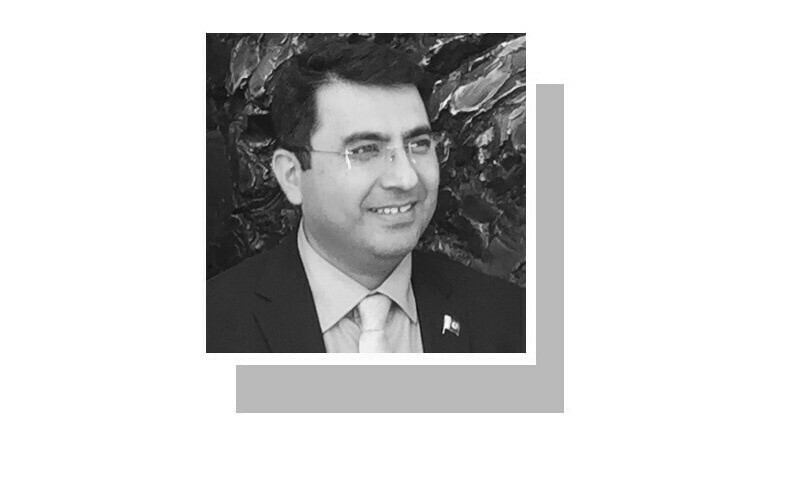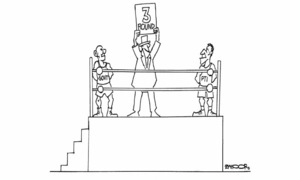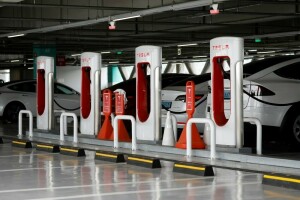WHY does a nation with one of the world’s largest youth populations struggle to prosper? What holds Pakistan back from realising its full economic potential despite its abundant resources? These questions are not just about numbers — they delve into the heart of our values, institutions, and collective choices. For Pakistan, the answer lies in solving a puzzle that has long eluded policymakers: the productivity paradox.
At the heart of economic success lies Total Factor Productivity (TFP), a measure of how efficiently a country uses labour, capital, technology and resources. Decades of research show that disparities in TFP — not just capital or labour accumulation — explain why some countries surge ahead while others falter. Yet, Pakistan’s TFP growth is alarmingly low. Between 1960 and 2013, it averaged just 0.87 per cent, compared to India’s 1.19pc and China’s remarkable 2.68pc. Recent data till 2023 confirms this downward trend, with Pakistan lagging behind its South Asian counterparts.
But productivity is not just about inputs and outputs — it’s a story of ethics, trust, and governance. It’s a story that Pakistan urgently needs to tell itself.
While policymakers often focus on tangible resources like infrastructure or education, they frequently overlook a critical factor: ethical capital. Ethical capital — shared beliefs about right and wrong, and their influence on collective behaviour — plays a pivotal role in economic development. It underpins trust, shapes institutions, and fosters cooperation, yet it is seldom discussed in our economic debates. It’s the invisible glue that holds institutions and economies together.
Ethical capital is the invisible glue that holds institutions and economies together.
Economic sociologist Francis Fukuyama famously argued that high-trust societies build stronger institutions and corporate structures, enabling them to flourish. In Pakistan, however, trust deficits and ethical lapses have created weak governance, fragmented social networks, and pervasive inefficiencies.
Corruption, opaque governance, and inefficiency are not just moral failures — they are economic liabilities. They erode public trust, distort markets, and increase transaction costs. When citizens perceive governance systems as unjust, they disengage, leading to lower investment, productivity, and innovation.
Why does this ethical gap persist? And more importantly, how can we bridge it to unlock Pakistan’s growth potential?
Consider the case of Scandinavian countries, renowned for their high levels of trust and ethical governance. These nations demonstrate how shared values of fairness, accountability, and transparency create environments where innovation and productivity thrive. Now, contrast this with Pakistan. A 2021 survey ranked Pakistan among the lowest on trust in public institutions.
Ethical deficits manifest in every sector: from bureaucratic inefficiencies to businesses avoiding taxes, the consequences are stark. Pakistan’s GDP growth is not just a reflection of state policies but of societal trust — or lack thereof.
Corruption does more than siphon resources; it fractures the moral foundation of a nation. When ethical governance is absent, citizens and businesses operate defensively, prioritising short-term survival over long-term growth. This creates a vicious cycle: weak governance leads to low productivity, which further undermines public trust. In Pakistan’s energy sector, for instance, inefficiency and corruption cost billions annually, discouraging foreign investment and limiting industrial growth. Without ethical reform, even the best-laid policies will fail to deliver results.
Rebuilding ethical foundations while addressing pressing economic challenges requires a multifaceted approach that aligns reform with targeted policy interventions. Pakistan’s greatest asset is its youth. Yet, the country’s education system is outdated, underfunded, and disconnected from the demands of a globalised economy. A revamp of curricula to focus on critical thinking, ethics, and skills relevant to the 21st century is imperative. Vocational training must equip young Pakistanis with technical skills to drive innovation and entrepreneurship. Equally, investments in health are critical; healthy workers are productive workers, and expanding healthcare access is essential to unlocking human potential.
Good governance begins with transparency, fairness, and accountability. Strengthening anti-corruption measures, for example, is crucial to ensuring that public officials are held accountable. Judicial reforms that create a fair and efficient system can build public trust and attract investment. Citizens must also be empowered through technology, such as e-governance platforms that enhance transparency and streamline public services.
Pakistan’s complex and outdated bureaucracy stifles entrepreneurship and innovation. Simplifying regulatory frameworks through digitisation can streamline processes like business registration and tax filing, reducing red tape and encouraging new ventures. Tax incentives for startups and small businesses can further foster innovation and incentivise risk-taking.
Modern economies thrive on technological innovation and efficient infrastructure. Digital transformation in key sectors like agriculture and manufacturing can significantly boost productivity. Investments in modern infrastructure — such as roads, energy grids, and internet connectivity — are equally critical, enabling businesses to scale and compete globally.
Can Pakistan afford to ignore the social cohesion needed for progress? Divisive politics and growing inequality have weakened its social fabric. A divided society cannot progress. Addressing inequality and fostering inclusivity can rebuild trust between citizens and the state. Dialogue platforms that encourage collaboration between diverse political groups and communities are equally important to strengthen the bonds of social cohesion.
Improving productivity is not merely a technical or economic exercise; it is a moral imperative. Productivity is about more than doing more; it is about doing better. It’s about aligning individual efforts with collective goals, guided by principles of trust, collaboration, and fairness. As economist Thomas Piketty observed, “Money and its unequal distribution cannot be studied from an exclusively economic perspective.” Pakistan’s economic stagnation stems as much from a failure of values as from a failure of markets. Ethics shape growth as profoundly as policies do.
Pakistan stands at a crossroads. The challenges are daunting, but the potential is immense. With the right focus on ethical governance, human capital, and evidence-based policymaking, Pakistan can crack the productivity code and secure a brighter future for its citizens. The road ahead will require difficult choices, but the rewards are worth it. Imagine a Pakistan where institutions inspire trust, citizens collaborate for the common good, and the economy thrives on the ingenuity of its people. This is not just a dream — it is a possibility. The question is: are we ready to act?
The writer is a professor at KSBL and former chief economist of Pakistan.
Published in Dawn, January 3rd, 2025















































Dear visitor, the comments section is undergoing an overhaul and will return soon.